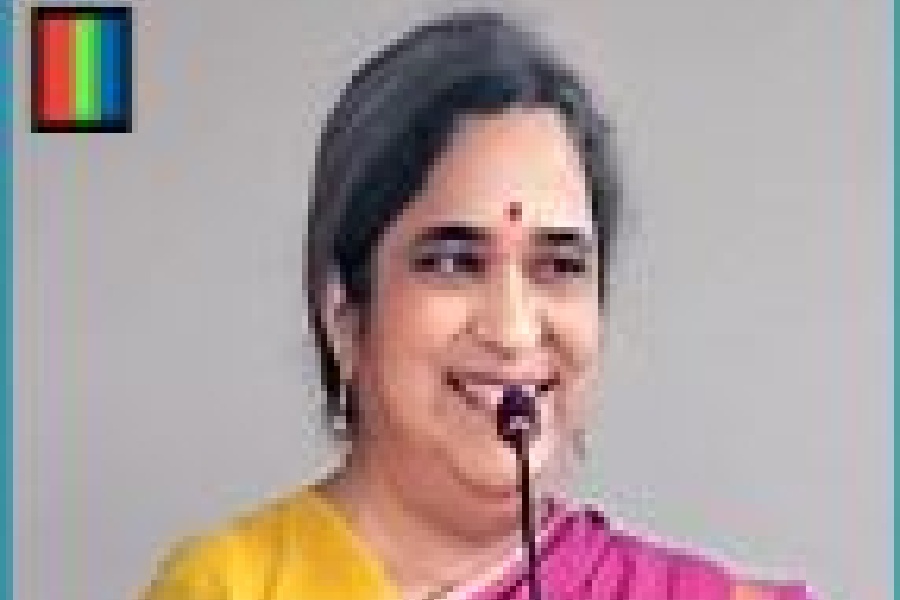The language of love is difficult in itself. Another layer of difficulty is added to its pleasure when one tries to translate it.
At an absorbing talk on Monday, titled “There and Not There: Translating Gender and Sexuality”, delivered at the Women’s Studies Research Centre, University of Calcutta, feminist scholar Ruth Vanita spoke about the challenges of translating the vocabulary of love — and other themes — that broadly come under the rubric of gender and sexuality.
Translation is not always possible. A word may have too many meanings, which will get lost in translation.
Vanita, speaking about her own works — her book on Urdu Rekhti poetry, her recent novel Memory of Light, which she herself translated into Hindi, and a forthcoming volume of translations of Hindi fiction titled On the Edge — often held up a particular word for the audience, making it shine in its many splendours. The difficulty of translation can also remind us of the rich heritage of a word.
A simple word like “hum”, for example, can be hard to translate. Vanita, whose 2005 book Love’s Rite: Same-Sex Marriage in India and the West remains a major work on gender, mentioned in this context a classic Hindi film song, Pyar kiya to darna kya from Mughal-e-Azam, and her own translations of Rekhti poetry, an Urdu genre written in the form of women talking to women.
The song uses the optative, leading to the suspension of the use of a personal pronoun, to talk about love as an act of daring. It also keeps the words “ungendered”. But these meanings would be lost somewhat if the words were translated in the optative mode in English or by inserting a personal pronoun.
The song goes on to say: “Ishq mein jeena, ishq mein marna, aur humein ab karna kya….” The word “hum” can mean both “I” and “we”. We do not know. Anyone can sing this song. Which is why it is a love anthem among the non-binary people, a fact Vanita, who has recently retired from the University of Montana, US, mentioned.
“Hum” and “tum” (you) can throw more challenges. In Rekhti poetry, which Vanita analyses in her book Gender, Sex and the City (2012), they both refer to women, but the ungendered equivalent English pronouns can obscure that fact. Translating a particular poem she had to insert a caption to mention that both pronouns referred to women. Captions are not the best thing always to introduce to poetry, but they can do their bit to not to erase a same-sex context with a vocabulary that automatically assumes heterosexuality.
When she wrote her novel Memory of Light (2020), a love story between two courtesans in 18th-century Nawabi Lucknow, Vanita had initially wanted the title “Among the fairies”. The word “fairies” would resonate because they would refer to the courtesans and their mystique and also to the fact that the English word was also used of homosexual men. But in 2020, fairy would primarily mean the creature of the fairy tales. Hence a different title was chosen.
It was far more satisfying, therefore, when Vanita could call this book Pariyon ke beech in Hindi, of which she herself was the translator. Pari, of course, means fairy. She translated the book in an Avadhi-heavy Hindi, to retain period associations, which meant more than one kind of translation was taking place.
Other things that can get lost in translation are a colloquial vocabulary and dialect, said Vanita, who is also well-known for her book Same-Sex Love in India: Readings from Literature and History, which she edited with Saleem Kidwai. In a work of Mahadevi Verma there is a Chinese man speaking imperfect Hindi. How does one render that when the entire text is being translated into English?
But translation, not always easy, is necessary. We have to remember what translation is for. “It is for those who don’t know the original,” said Vanita. “The translation can never live up to the original.” But imagine how much less we would know of the world of there was no translation.
